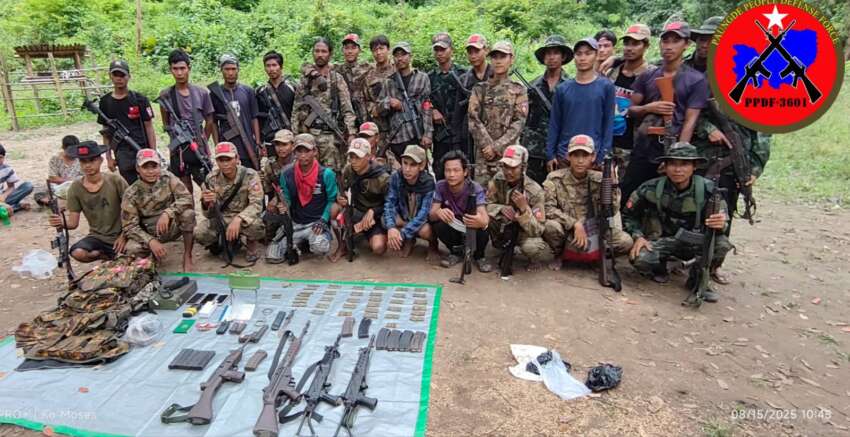
The Mandalay Division Development Committee has issued a directive requiring all shops in Mandalay to install glass doors and panels, following instructions from military council leader Min Aung Hlaing. This order comes in the aftermath of the devastating Sagaing earthquake that struck on March 28 this year, resulting in hundreds of casualties in the earthquake-affected Mandalay region. The directive was issued on September 6, following Min Aung Hlaing’s return from China.
According to the Mandalay Development Committee, the mandatory installation of glass doors and panels aims to transform the city’s appearance to match modern cities worldwide. Similar orders have been issued in Pyin Oo Lwin, with additional directives released on September 11 requiring all shops to install glass doors and panels. A military source from Naypyidaw suggests that this initiative may have been inspired by observations of storefronts in China, where shops commonly feature glass panels and doors along streets.
However, this directive has created significant hardship for Mandalay residents who are still recovering from the earthquake’s devastating impact on lives and property. Shop owners and tenants are struggling to negotiate the sharing of installation costs, and some fear that rental prices will increase as a result. A shoe shop owner who lost both home and business in the earthquake described the situation as a double-edged sword, using a Burmese expression meaning ‘painful whether you grab it or eat it.’
The Mandalay Development Committee has set September 30 as the deadline for all shops to comply with the glass installation requirements, with strict penalties for non-compliance. First-time violators will face fines and legal action, while second-time offenders will be placed on a list of rule-breakers. For third-time violations, shops will be forced to close for one month. These stringent measures are causing additional hardship for earthquake-affected citizens who are already struggling to rebuild their lives and businesses. The military council’s insistence on implementing these cosmetic changes while people are still recovering from a natural disaster demonstrates a disconnect from the immediate needs of the population.



